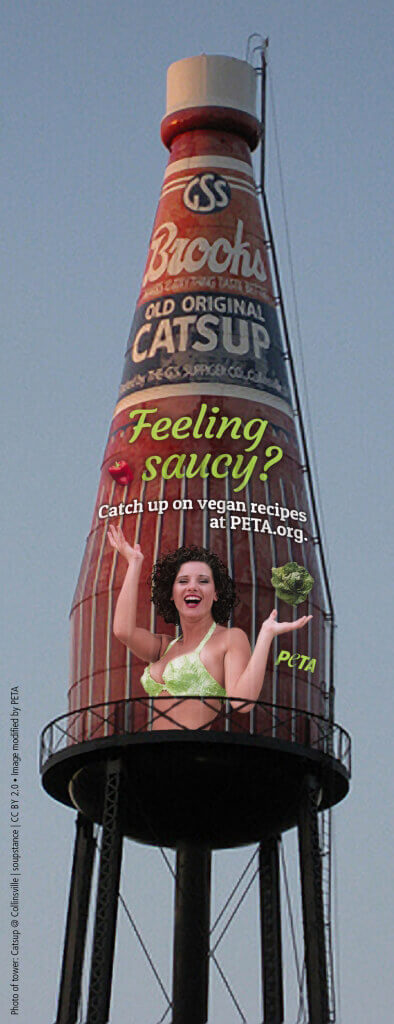What Goes Best With a Giant Bottle of Catsup?

These aren’t such good times for the 170-foot-tall catsup bottle in Collinsville, Illinois. The 65-year-old landmark has been put up for sale with an asking price of $500,000. That’s a little too rich for PETA’s taste, but we’d still like to do our part to preserve this iconic homage to one of America’s most popular condiments, so we’re offering to pay to place this ad on the big red bottle while a buyer is being sought.
PETA wants to remind Collinsville residents and the thousands of tourists who make pilgrimages to the giant catsup bottle in the sky every year that catsup is full of “natural mellowing agents” (at least according to the fictitious Catchup Advisory Board), aka the potent anti-cancer phytochemical lycopene, as well as vitamins A and C and folic acid. However, hot dogs, hamburgers, and other animal products that frequently accompany catsup are full of natural sickening agents, including saturated animal fat, cholesterol, nitrates, and heterocyclic amines.
In addition, those “all-beef” franks and burgers are taking a terrible toll on the environment. According to a recent study, beef is the most environmentally damaging of all animal products, producing more greenhouse gasses and water-polluting nitrogen and using more land and water for irrigation. “[E]ating a pound of beef causes more greenhouse warming than burning a gallon of gasoline,” said environmental scientist Ken Caldeira.
Catsup deserves better than to be paired with foods that hurt animals, the environment, and our own health. We wish Collinsville’s giant catsup bottle a long and fruitful life, just like the lives of the animals people save when they opt to put their catsup on French fries, onion rings, veggie dogs.

